An Interview with Karen Traviss - Gears of War Novelist and NYT Bestselling Author Part 1 (Anime and Badass Women)
Karen loves Roy Mustang, One Piece, and badass female characters.
For the last three months, I have entered the world of Gears of War via the 5 books written by Karen Traviss.
Aspho Fields (2008)
Jacinto’s Remnant (2009)
Anvil Gate (2010)
Coalitions End (2011)
The Slab (2012)
It’s been a hell of a ride and we are closing it all off with a special interview that I am so excited to share.
But let’s talk about Karen a little first.
Karen Traviss is a New York Times bestselling author who started as a journalist and transitioned to fiction. Starting with her 2004 novel, City of Pearl, Traviss created the Wess’har series. Right around this time, Traviss worked on Star Wars and created the Republic Commando series. Later, Traviss would also write 3 books in the Legacy of the Force series for Star Wars. In 2008, we would get to the Gears of Wars books and in 2011, Traviss tackled Halo giving us the Kilo-5 Trilogy.
From 2004 to 2014, Traviss was prolific and worked with 3 different established IPs and wrote 24 novels total (including her own debut series). That is just incredible! Lesser writers would’ve faltered with output of this volume. Not only that, but the attention to detail these franchises require is no small feat.
I reached out to Karen months ago with the humble request to just talk to her about Gears of War because I wanted to focus on the Gears’ books/games for the fall. I pitched my idea and sent it over to her. I wasn’t sure if she would respond and I was already anticipating that she would just be too busy but I was wrong. Karen replied with enthusiasm about the series and willingness to talk to me on record about her contribution to Gears of War, which I have stated before, is a lot. The five books that Traviss wrote fill in what happened to our main characters between Gears 2 and Gears 3 (the video games). I believe Karen is more responsible for the lore than Epic or Cliff or any of them over there. It’s truly incredible how much love and work she put in.
I wrote about Bernie Mataki in Aspho Fields, ethical questions in Jacinto’s Remnant and Hoffman’s brutal war crimes in Anvil Gate. I also read Coalition’s End and The Slab but failed to get any post out due to the high demand of the holidays at my job and also another recent, positive development in my life. All 5 books are substantial in length and required reading of any fan of the series, in my opinion. Nothing about Traviss is phoned in and I respect her so much for the seriousness she approaches video game lore.
In actuality, I didn’t ask Karen that many questions but her answers are so detailed and thought out that I had a hard time deciding if I should cut it down or post pretty much everything she responded with. I decided to post her full responses and break it up into a few posts so as to not overwhelm the reader at one go. The serialization of this back and forth is a better format and I hope you also fall in love with Karen as much as I have the last 3 months. Even if you are not well versed in the lore of Gears of War, her perspective on writing, craft, morality, and human existence is profound.
Here are the first 2 questions I asked Karen and her responses. Enjoy.
Many of the interviews with Traviss about Gears/Halo/Star Wars deal with how she got into the business of writing for established IPs so I wanted to drift into the meat of the questions I wanted to ask (no sense in wasting her time). At the end, I’ll link to an interview or 2 I think are good places to start if you want more basic info.
For now, I started off with an ice-breaker.
Jesse: I read in another interview that you grew to have an appreciation for anime. I was wondering if there were any current shows you’re watching or old shows you’re revisiting. Also, do you have a comfort anime? Mine is FullMetal Alchemist Brotherhood.
Traviss: Appreciation is an understatement. I love it. I do get people saying, "God, at your age? Really?" I don't think the Japanese would find it odd, though. Old folks there can even get manga aimed at seniors.
Anime is one of the only two fiction media I can enjoy as a consumer without interfering with the pro writer part of my brain. I normally have to choose between enjoying something and seeing it as a writer, which ruins it for me, because my brain tends to compartmentalize it. But with comics and animation, I can move easily between the two. I can totally immerse myself in an anime and then step out of that mode and see it as a storyteller. I don't know why I process those two formats differently, but I do, and it's not just that they're visual, because my enjoyment of movies was seriously impacted when I started working in television. You can see the strings, so to speak. It remains a cognitive mystery why my brain exempts those two formats.
When would-be writers ask me how they can learn more about the craft, I point them to anime, not novels, because the storytelling is rigorous, and the attention to detail and construction of characters is generally top-notch. The thing that struck me most when I started watching a lot of anime was that the halfway point of most series is where Hollywood gives up and calls it a day in movies. Korean dramas are the same. It delivers on the main premise, but then it starts digging further into the consequences, not just once but maybe multiple times, any one of which would be a satisfying ending for a Western director. I think it's the "continuing chain of consequences" that plays a large part in making both anime and K-drama so watchable, because it's a contrast to the West's devotion to the three-act structure. I don't write in three acts (which might be why I prefer Asian TV and cinema) and I always tell would-be writers that if they can't make it work, they could go and watch some anime and realize they don't have to. I suspect a lot of people who want to write never get past that rule but would be fine if they wrote in a structure that felt natural for them.
Yes, I love FullMetal Alchemist Brotherhood too. On the professional side, I always cite it as the perfect example of exploration of a theme. I'd never presume to guess an author's intent without asking them (English Lit teachers please note... ) so I don't know what Hiromu Arakawa intended, but to me the whole series was about the monster within at every level – the actual monsters in the form of homunculi, the parts of themselves that the alchemists see as monstrous, the origin of Hohenheim, everything. Everything springs from that side, but it's not necessarily the path to destruction. For example, Greed has remarkably redeeming qualities for a deadly sin and enables good to prevail. But if all that happened unintentionally, Arakawa is still a solid gold genius. On the otaku side... I cried over the penultimate episode (the final Hohenheim scene) and Hughes, Roy Mustang is a legend, and the Armstrong twins are priceless.
So what am I watching now, and what else would I watch again? Re-watching one is tough. I tallied up my viewing time over the past few years and I actually do watch more anime than the average Japanese teen. I have a professional reason, obviously, but it's also pure escape for me, and I have very little of that in my life. A friend asked me for anime recommendations and I was into two sides of A4 with the list before I felt it was enough for him to be going on with.
At the moment, I'm watching Spy x Family, which fully lives up the hype – smart basic plot device combined with terrific characters; Doctor Stone, which is one of my all-time favorites, again a great format but also equally well-written characters; I'm pacing the floor waiting for the final season of Golden Kamuy, which is vastly underrated and will probably end up as my number one; and I'm up to date with One Piece, which I started watching because I wanted to know how any writer could sustain nine-hundred-odd episodes (as it was at the time) without reboots and spin-offs, let alone keep it fresh enough for 20 years to be the best-loved anime in Japan. Within two episodes, I was binge-watching at an unhealthy rate. I had my answer. Now, I'm the first person to shrink back in dread when live action adaptations are announced, but Netflix's One Piece proved they needn't suck. I actually grew to like Luffy; he's far more driven and relatable in it. The whole thing is more streamlined and solid, and you get a much better sense of a maritime world. Although I prefer the upward-failing anime Buggy to the excellent but disturbing Joker-style live action one, the characters are the crystallized essence of themselves in it. Superb cast, great script, fabulous effects. Roll on season two.
What would I watch again, if the emergence of new series slowed a bit to give me time? Well, after Ghibli, the first anime I saw was Monster, which I watched on the hotel TV when I was working on Gears in the US, so I only saw a few episodes every couple of months and missed most of it, but I was blown away. So I watched the whole thing from scratch this year. Brilliant. Just a masterpiece. I probably couldn't list all the anime I loved and still miss, but off the top of my head, the stand-outs for me are The Great Pretender; Heaven's Design Team (everyone in marketing and the creative industries has worked with the guy who invented the horse...); Odd Taxi: Cowboy Bebop; Trigun (original and reboot); Stein's Gate; Ranking of Kings; Star Blazers - Space Battleship Yamato (a great sing-along!); Chainsaw Man; Eighty-Six; Jo-Jo's Bizarre Adventure (Stardust Crusaders was peak); Violet Evergarden; The Disastrous Life of Saiki K (reminiscent of Peter Tinniswood, oddly enough); Parasyte The Maxim; and Uncle From Another World.
I was caught out by Gundam, which I assumed was Transformers-ish, but Mark Kern said he rated it so I started watching Mobile Suit Gundam: The Origin, and my assumptions completely disintegrated in the first scene. I really wasn't expecting a cross between the Battle of Britain, the Borgias, and Kill Bill. It was an honest war movie at its heart, and the mecha just became fighter aircraft to me. I stuck with that branch of the canon until Iron Blooded Orphans, but that broke my heart and I never watched further. Those who know me express surprise that I have a heart to break, seeing as mine tops granite on the Mohs' scale, but anime somehow hits me right in the feels. I was gutted by the ending of the second season – upset enough to keep thinking it through for days. I thought I'd seen a mention of a third season, but if there is, it's going to be hard rewatching the first two. It'll be a ten-boxes-of-Kleenex job.
So yes, I love anime. (Except Evangelion, Tokyo Ghoul, and Demon Slayer. Sorry.) I prefer sub to dub, but whichever one I start with, I stick with it because I don't like the voices to change. And I'd read more anime if I had room for the paperbacks, because I don't enjoy digital comics. So anime is my primary medium.
Jesse: I absolutely love all of this. Your passion for anime also emboldens my adoration for it as well. It is lovely how all ages enjoy anime in Japan and it’s their preferred medium for storytelling. I’m glad it has caught on so intensely here and pushed its way into the mainstream because I do feel like people don’t have a sense of what good anime is. Like most things, there is a lot of anime and not all of it is excellent so it’s great to see the quality shows hit major streamers here.
In other interviews, you have already gone over how you got into the Gears-franchise, so I’ll get right into things and ask questions as a fan.
With my dive into your Gears-novels earlier this season, I was pleasantly surprised to see Bernie Mataki pop up (with her signature Longshot) in Aspho Fields which was written years before Mataki would show up in Gears of War 3. I know I emailed about this immediately after my discovery, but I was wondering if you could expand on the inception of Mataki and what she means to you (she is a favorite of mine!).
Traviss: Yes, she was the first character I created for Gears when I joined the team some months before Gears 2 was released.) Mataki emerged the same way all my other characters do, which is also how I develop or reboot those I inherit. What's the setting and the era? Who would logically be there, and why? All I need is a peg in the ground, be it one I've planted or someone else has, and the rest flows from there. The peg in this case was the battle of Aspho Fields, years before E-Day, during the Pendulum Wars. When I was asked to write the book, my first question was: "Okay, what's the battle of Aspho Fields?" Mike Capps, who was the Epic boss back then, said: "All we know is that Dom's brother Carlos died there. The rest is up to you." And that set the tone for how we worked. It was a very broad canvas indeed.
The fact that I was working directly with the studio rather than having to filter everything through the editor at the publisher says a lot. We had a direct relationship, and that made a huge difference; some publishers don't allow any contact with the franchise's team, and some franchises don't want to talk directly to the hired help. But Epic valued writers enough to work alongside them. That's not usual in my experience. With some other IPs you get stuffed by internal politics, don't get given information, and in some cases it's actually withheld. But Epic wanted everyone involved, and we got on like a house on fire. They only filled in as much story as they needed to deliver a great game, and resisted the urge to over-build the world and paint themselves into a corner by pinning down too much detail too soon. That was a breath of fresh air, and soon I wasn't just writing the books, I was doing story consultancy, and then the comics and the next game. People need to be able to see the whole picture to keep an IP consistent and coherent. Silos can be unavoidable in any industry, but the really good stuff happens when everyone knows what's going on and has a sense of personal investment in the final product.
Gears was a radically different experience, as close as I've ever seen to a shared vision in any job. It reached the point where it was like we'd all really lived in that world but had forgotten it, and now our memories were coming back. It was so consistent that it was weird. I don't know what the cognitive process was that made it almost identical in all our minds, but it happened. (Ask me about Prescott's carpet one day. That was spooky.) It was energizing after what I was going through with another IP at the time. I still have a good relationship with the Gears guys even though it's a different team in a different company now and I haven't been involved in it for years – there's something unique about Gears that I've never quite pinned down. But whatever it is, it's got this genuine team spirit.
So back to how Mataki happened. In terms of defining the time and place, I only had to look at the concept art to know exactly what Sera was all about and its past, and the characters too. The design was perfectly executed. With the cinematics, mostly from Gears 2, then kicking ideas around, it was easy to evolve the fine detail of that world. You could hear it, smell it, and taste it. With Aspho, I needed some way to look back 15 years (or whatever it was – I forget) to when Marcus, Dom, and Anya were youngsters on the front line of a war that seemed to have been going on forever. The society they lived in and the state of war defined the characters. To deal with Aspho, I could do a straight historical prequel, or I could tie it in to the present day, which meant flashbacks showing the genesis of what we see on E-Day and – most importantly – why the characters are the way they are when we first see them in the game. I'd never used flashbacks before, but I thought, yeah, why not give it a go, and it turned out to fit so well that it became the structure for the next few books, a chapter of the current day alternating with a chapter of flashback.
Then I needed a bridge between those two periods – a character who could relate what they'd seen and done back then to what was happening now, someone who was an NCO in the Aspho period, and would be at or beyond retirement age, and had an overview of these lads (and lasses, in this case). That character would be able to see how much they'd changed over the years and would be the vehicle to explain that to the reader. So that person also needed a reason to (a) be absent from the main action so they could ask questions to provide informative answers, and (b) have a reason to come back to the front line in the first place. That way, they could fill in the gaps for the reader without sounding like a clunky infodumping episode of CSI. (Expressed in the SF writing community as, "As you know, Professor...") Hoffman fitted the role in terms of age and career history, but he wasn't the right character to do it because he'd been there throughout and wouldn't have a logical reason to be Colonel Obvious and repeat what Delta Squad already knew. I saw him developing more as the continuity figure, the man who'd seen it all unfold from another position and could frame the terrible dilemmas in digestible human terms. He was the guy who never enjoyed being an officer and hated the necessary distance he was supposed to keep from the ranks.
So I came up with a sergeant who'd known Carlos and witnessed his death with Marcus and was therefore able to relate another side of that story. That sergeant had to know Dom and Marcus like sons, and retire a long way from Ephyra to explain why they weren't in Gears 2 and missed E-Day. A remote South Islands territory fitted the universe perfectly, and I liked the idea of introducing what was effectively a tough New Zealander to boost the global feel of the COG. So they'd also be someone who was used to self-sufficiency and survival, capable of making their way halfway across the world when they found out about E-Day. And because we knew there were female Gears but hadn't seen them on the front line in any meaningful way yet (Anya didn't count because she had that established guide role in the game) I made that sergeant a woman. That's how Bernadette Mataki came to be. She'd be a farmer; you have to grow and raise your own food on an island like that. She'd be used to heavy physical labor, and not remotely squeamish. It's a hard job. But Bernie's still a woman, and much older, so she wouldn't have impossible strength because women aren't built like men, which is something I'm pretty strict about in my fiction. I stick to reality as far as is humanly possible. A sniper role is very feasible for female troops, though – remember all those lethally accurate Russian women who fought in WWII – and she'd start from there. And we have a fair few female Raven pilots in the books as well. Pretty well everything has to be feasible in the real world for me, right down to calorie requirements for rations, or I can't work through the story. I'll handwave FTL and all kinds of stuff, but I need to know the rules I'm breaking before I do that.
If you've read the novels, you'll remember the relationship between Cole, the big, strong, athlete, and Mataki, the half-starved veteran still recovering from injury, and feeling her age after a nightmare journey on her own to reach Ephyra, and how he worries about her ability to handle a heavy Lancer. He does what he can to beef her up. I repeated that realism with Anya in the books. When she leaves the HQ post to become a frontline Gear out of necessity, she changes physically. She even walks differently to accommodate the armor and the weight of the kit she has to carry, which is something an army contact said was exactly what he'd noticed with female colleagues once they had to kit up like that. They're not unrealistic superwomen; they just have to use the skills and kit they've got more intelligently to level the playing field.
Once I have a few basics like "sixty-year-old female farmer who fought on the front line," the rest is instant, and I do mean instant. Characters fall into place very fast. The basics take at most a couple of minutes to work out and the headline details slot into that right away. My characters are never based on anyone real because I find existing people don't fit into fiction very well. There's always the temptation to over-embroider because you can see the real person in your mind's eye, and that's the last thing you need to create reality on the page. I think you need to leave stuff out. ( If you read the FAQ on my site about it, I explain it in terms of what you need to omit in a drawing to show an accurate aerial view.) I think it's easy for me to build characters from scratch like that because I've accumulated a huge mental data set of human behavior and characteristics over fifty years, and the pieces fit together like picking components from a warehouse to make a machine. Suddenly, the character is just there and I've got all the rules and building blocks to work out how they'll interact with each other, although they almost always end up going down the path I wasn't expecting and surprising me. Sometimes a character takes a bigger or smaller role than I first thought they would, too, but that's part of how I work by committing myself to follow the characters' interactions as they'd be in real life, like a computer model, and avoiding the temptation to change anything just because I like the idea of something different. I do that with my creator-owned stuff as well. It's exactly the same approach. Everything flows from the characters. I'm trying to emulate actual causality, which gets increasingly complex to manage as a story develops, so the last thing I need is to scupper myself by authorial intrusion. It's never as good as letting the characters do what they'd naturally do. Some forks in the story tree can go many different ways, of course – does Hoffman know Mataki, and if so what's their history? – but once the path is taken, I stick to it. So Mataki ended up making a lot more sense than I expected of Hoffman's past and showing why he's the man he is when we first see him.
Part 2 coming soon!


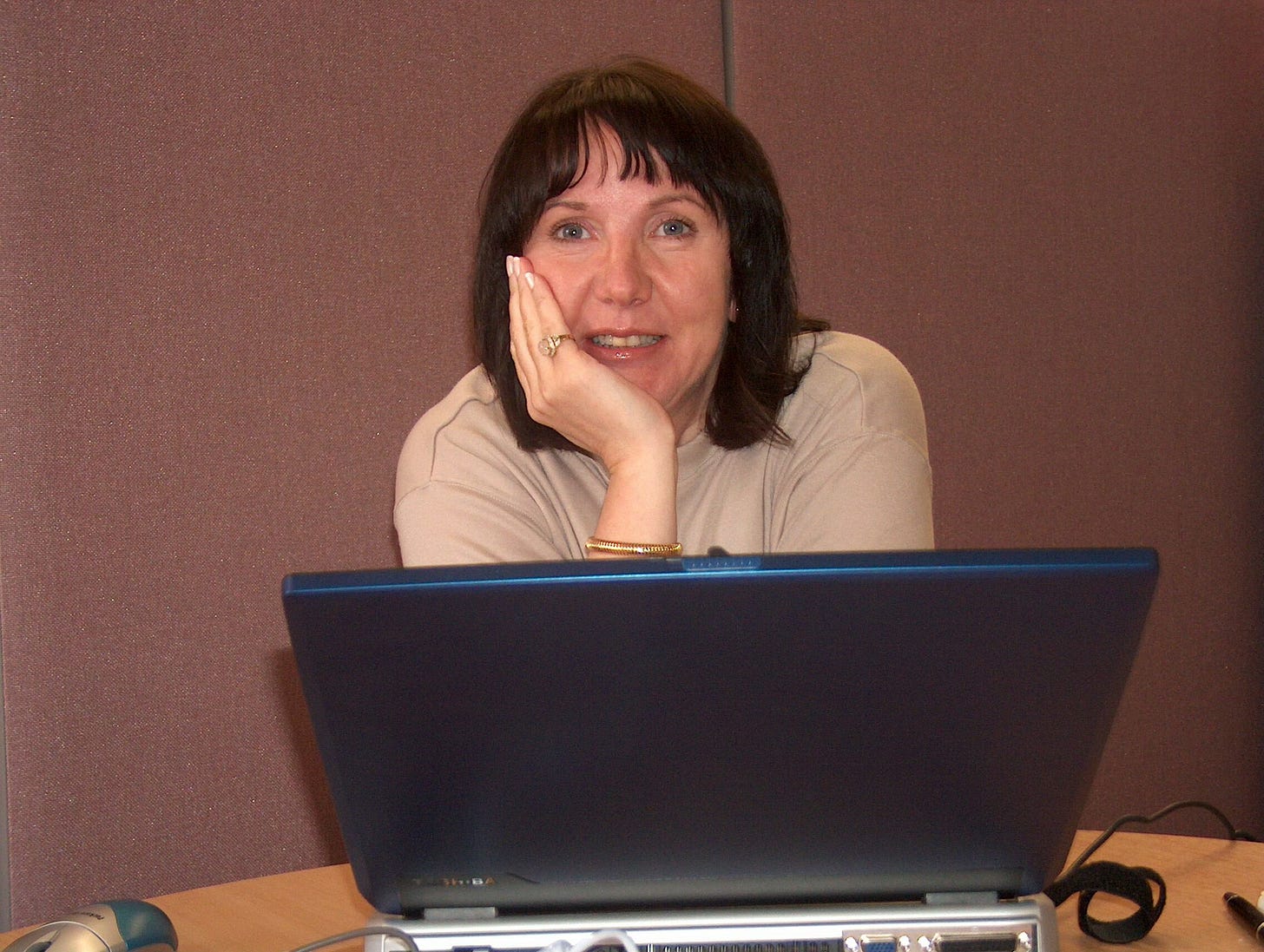
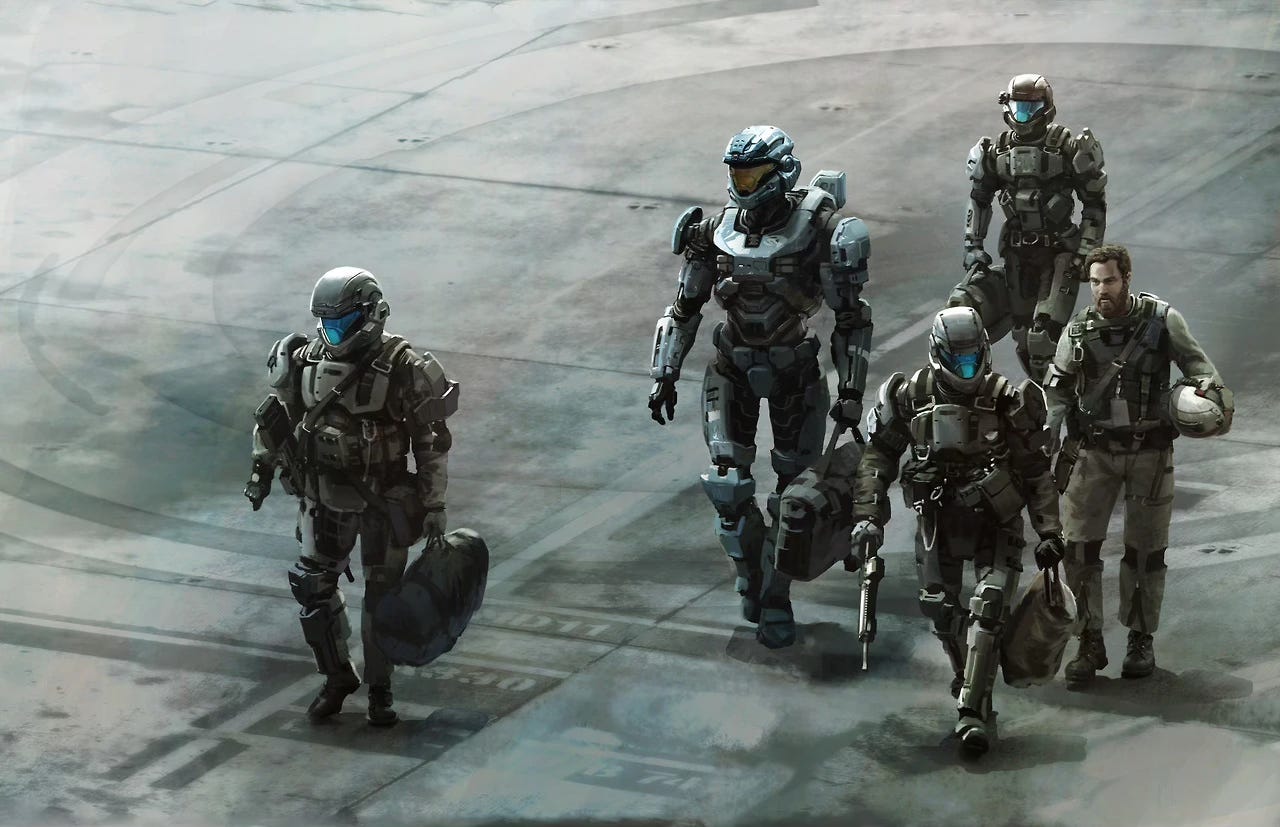
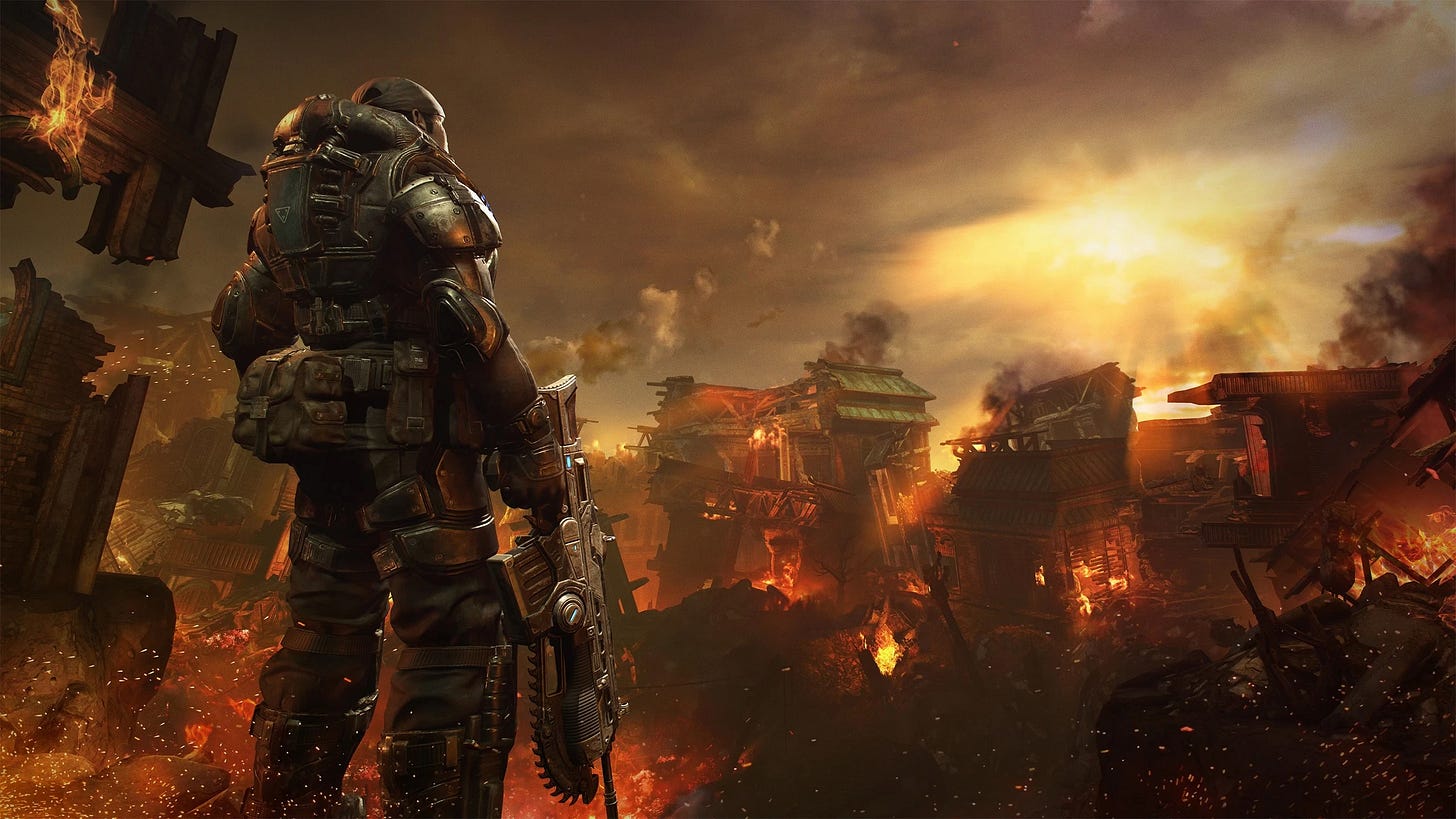
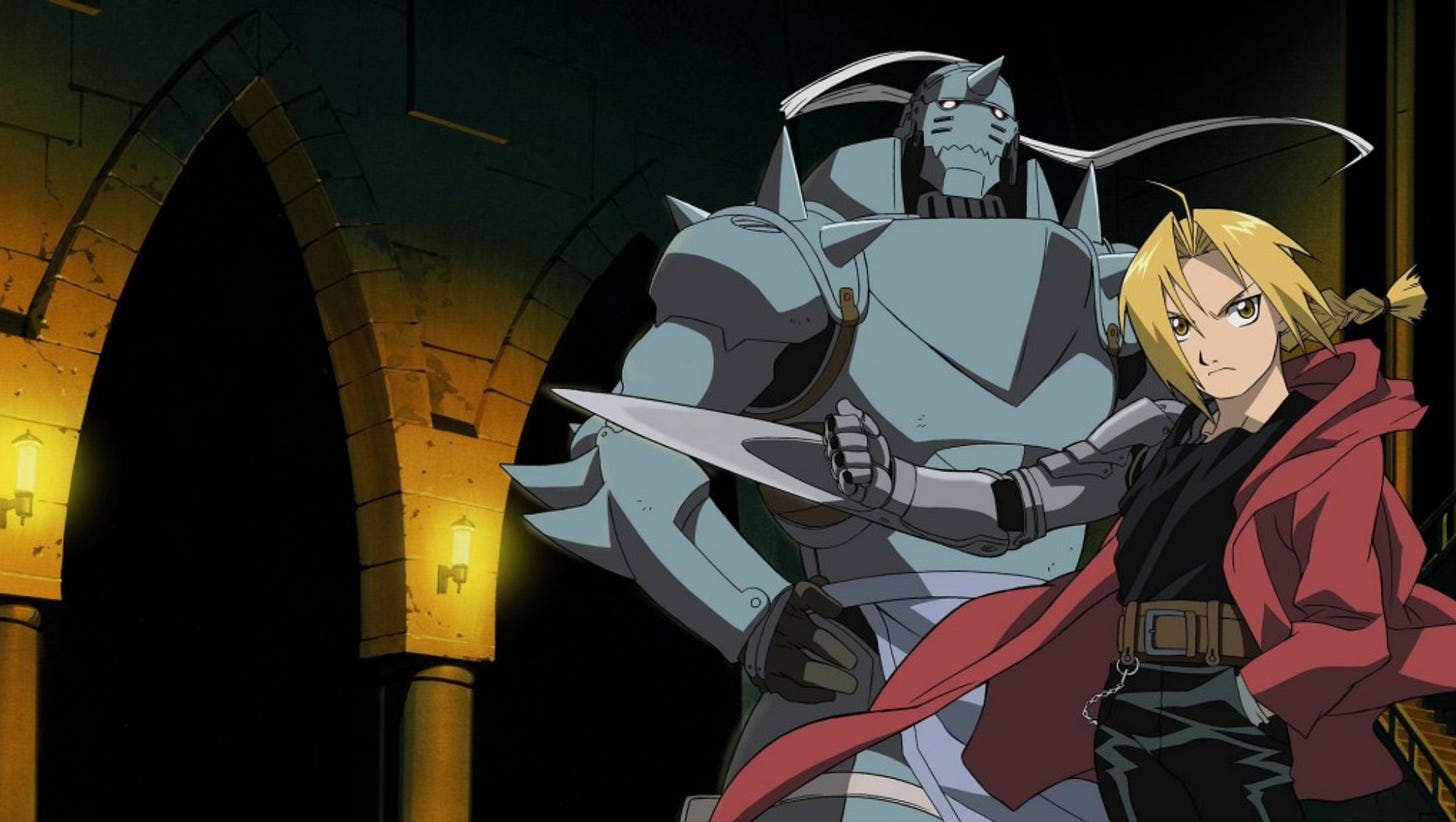
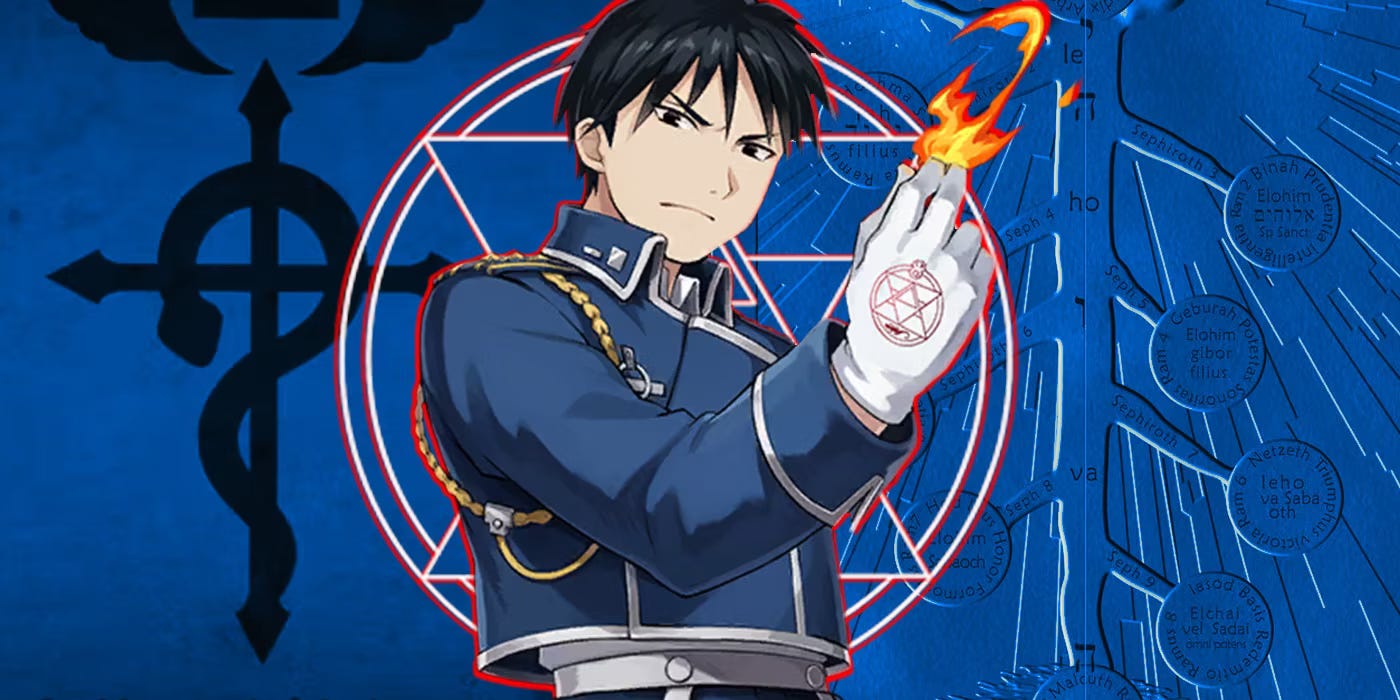
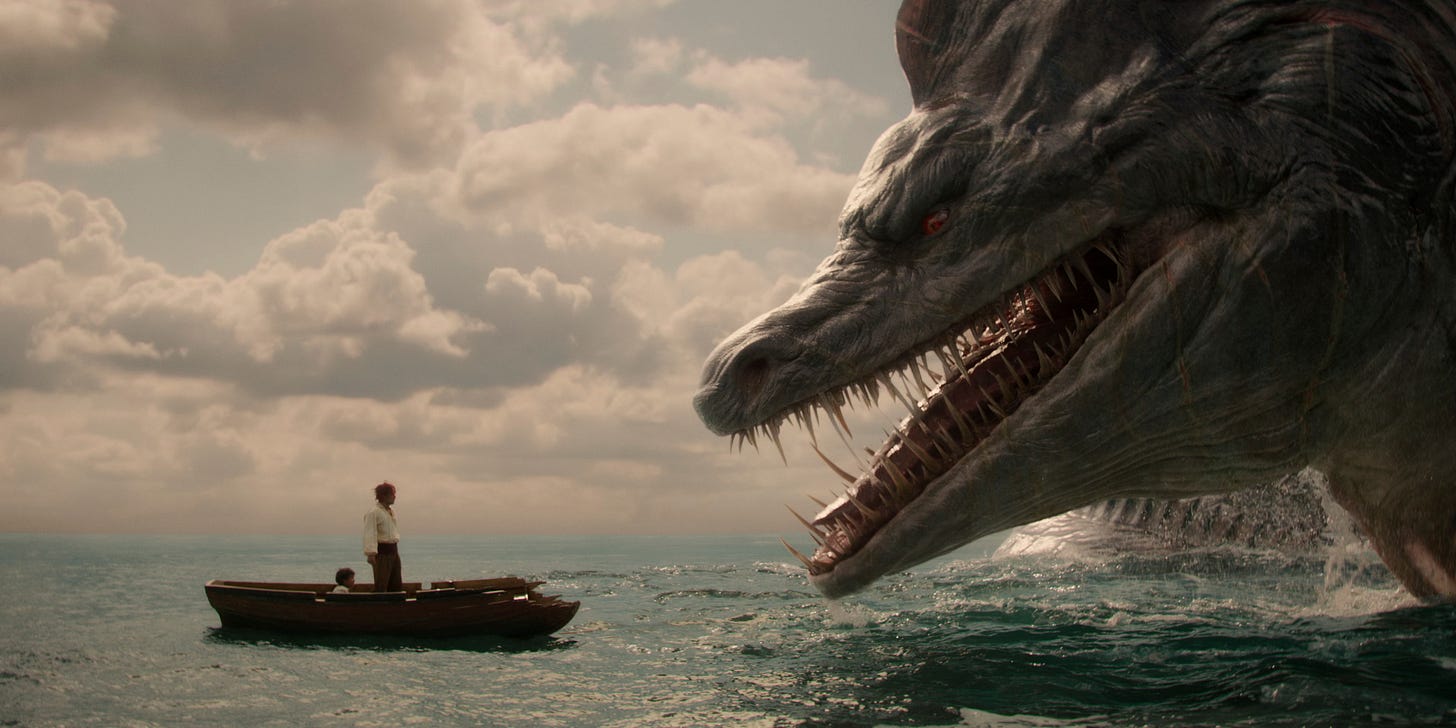
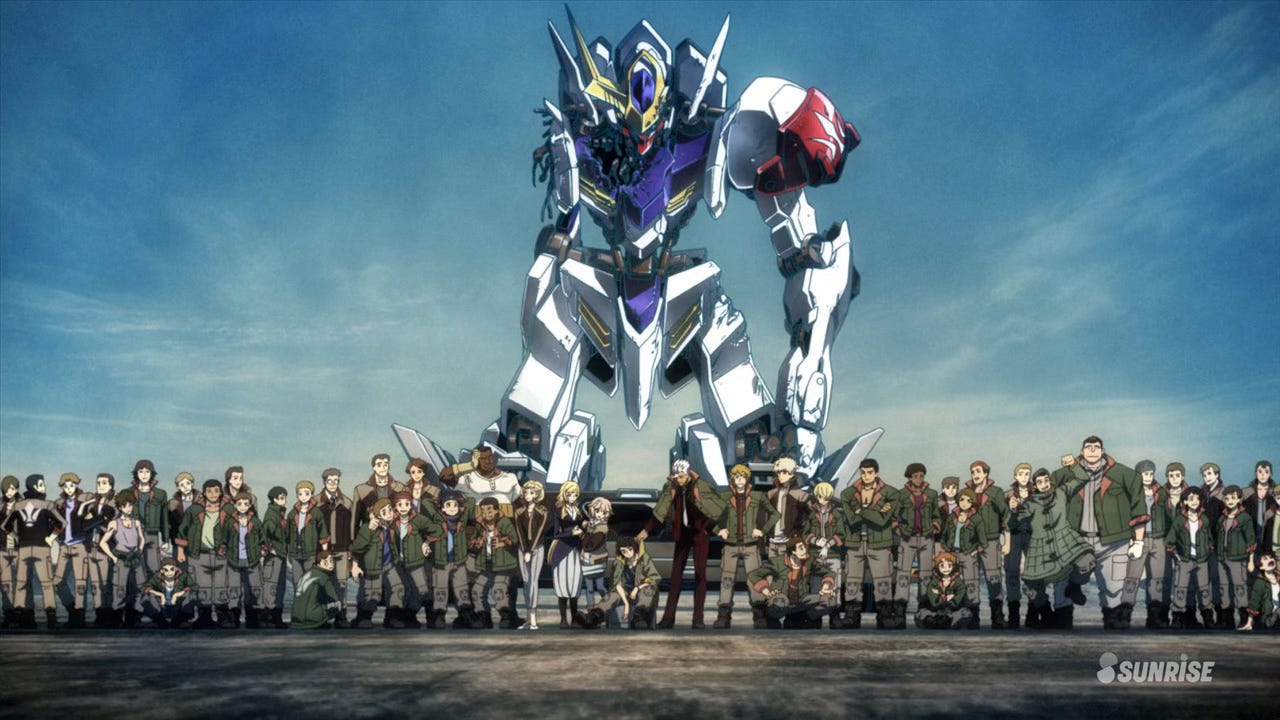
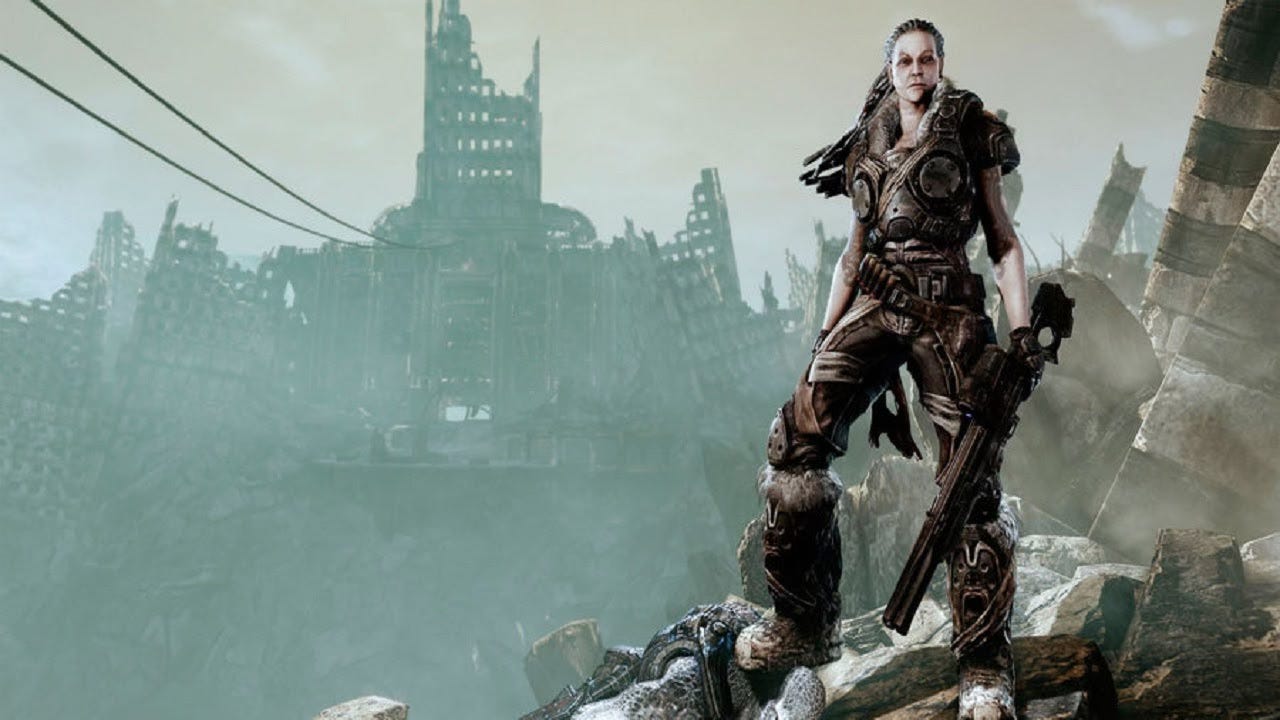
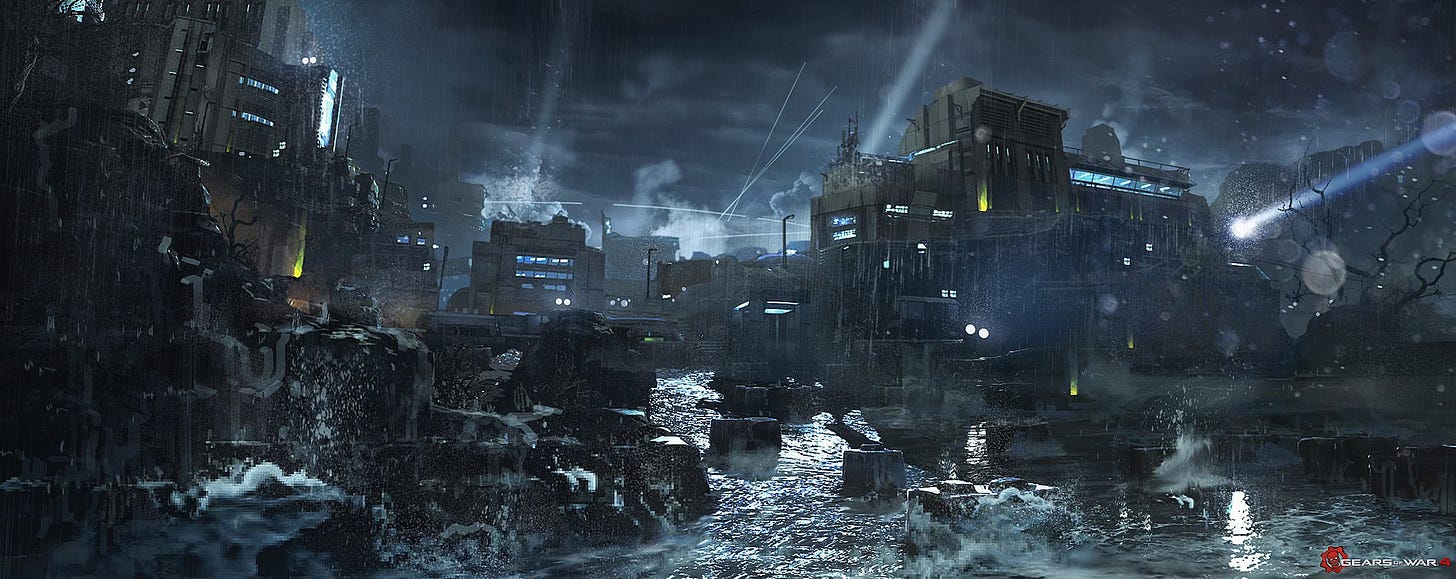
Great article! Loved hearing Karen’s thoughts on storytelling and being a writer.